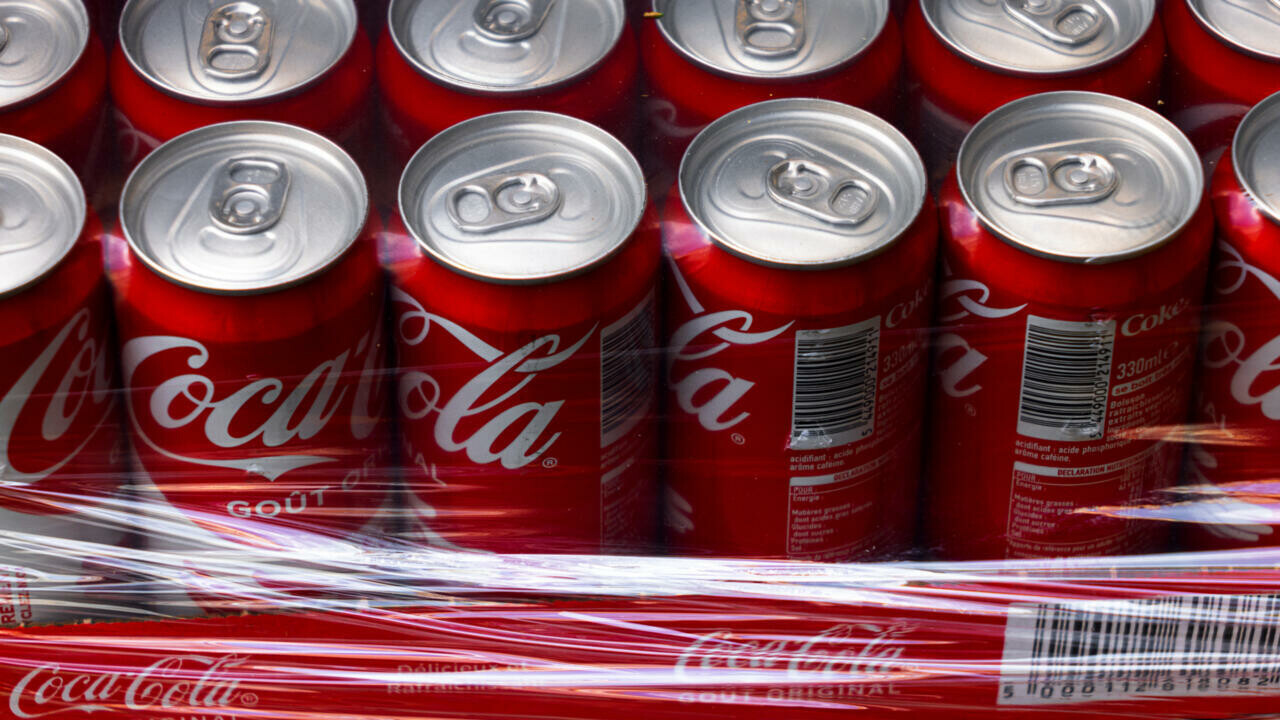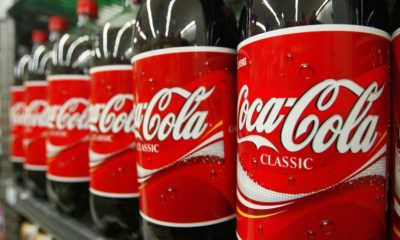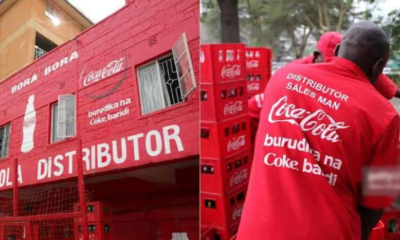Business
Coca-Cola Recalls Drinks Over Safety Concerns
Coca-Cola recalled its drinks in several countries across Europe on Monday because of excessive levels of a potentially harmful substance. The recall concerns cans and glass bottles of Coke, Sprite, Fuze Tea and other beverages distributed in Belgium, the Netherlands, Britain, Germany, France and Luxembourg since November.

Coca-Cola has recalled its drinks in some countries across Europe because they contain “higher levels” of a chemical called chlorate.
The firm said in a statement that the recall was focused on Belgium, Luxembourg, and the Netherlands. It added that just five product lines had been shipped to Britain and had already been sold.
Affected products include the Coke, Fanta, Sprite, Tropico and Minute Maid brands, according to the Belgium branch of Coca-Cola’s international bottling and distribution operation.
Chlorate can be produced when chlorine-based disinfectants are used in water treatment and food processing.
“Independent expert analysis concludes that any associated risk for consumers is very low,” a spokesperson told the BBC.
Coca-Cola said it had not received any consumer complaints in Great Britain, and that it had “alerted the authorities on this matter and will continue to collaborate with them.”
The company did not specify which products have been affected in the UK but said the five product lines were shipped to the UK towards the end of last year.
Anne Gravett from the Food Standards Agency said it was investigating.
“If we identify any unsafe food, we’ll take action to ensure it is removed and alert consumers,” she added.
Exposure to high levels of chlorate can cause health problems including thyroid problems, especially among children and infants.
NHS and private nutritionist Caron Grazette told the BBC: “We need to question whether or not we want to digest chemicals in soft drinks which are used in the production of fireworks and disinfectants, however small the quantity”.
Chlorate’s effects on humans when taken in excess include nausea, vomiting, diarrhoea, and limiting the blood’s ability to absorb oxygen, added Ms Grazette, citing recent research into the chemical.
The higher levels of chlorate were discovered during routine testing at the company’s production facility in Ghent, Belgium, according to an unnamed company spokesperson quoted by the AFP news agency.
The majority of unsold products had been withdrawn from shelves, according to AFP, and the company was in the process of withdrawing the rest.
A Coca-Cola spokesperson said it “considers the quality and safety of its products as its top priority”.
(BBC)
Kenya Insights allows guest blogging, if you want to be published on Kenya’s most authoritative and accurate blog, have an expose, news TIPS, story angles, human interest stories, drop us an email on [email protected] or via Telegram
-

 News2 weeks ago
News2 weeks agoTHE FIRM IN THE DOCK: How Kaplan and Stratton Became the Most Scrutinised Law Firm in Kenya
-

 Grapevine1 week ago
Grapevine1 week agoA UN Director Based in Nairobi Was Deep in an Intimate Friendship With Epstein — He Even Sent Her a Sex Toy
-

 Politics2 weeks ago
Politics2 weeks agoPresident Ruto and Uhuru Reportedly Gets In A Heated Argument In A Closed-Door Meeting With Ethiopian PM Abiy Ahmed
-

 Investigations1 week ago
Investigations1 week agoHow Mexico Drug Lord’s Girlfriend Gave Him Away
-

 Business2 weeks ago
Business2 weeks agoSafaricom Faces Avalanche of Lawsuits Over Data Privacy as Acquitted Student Demands Sh200mn Compensation in 48 Hours
-

 Investigations1 week ago
Investigations1 week agoHow Close Ruto Allies Make Billions From Affordable Housing Deals
-

 Investigations2 weeks ago
Investigations2 weeks agoKenya’s DCI Opens Probe on Russian Man Who Secretly Filmed Sex Escapades With Women — But There’s a Slim Chance They’ll Ever Get Him
-

 Investigations2 weeks ago
Investigations2 weeks agoHow A Female Employee and Her Accomplice Cracked eCitizen and Siphoned Sh10 Million From Moi Teaching and Referral Hospital
























